‘I’ll be on the edge of my seat for the rest of my life’: Adelaide woman’s cruel cancer diagnosis
Sophia Noelle Thompson thought her headache was due to stress from her school exams. Instead it was hiding a horror disease that could now claim her life at any time.
Lifestyle
Don't miss out on the headlines from Lifestyle. Followed categories will be added to My News.
After being diagnosed with bone cancer as a teenager, Sophia Noelle Thompson is now what doctors class as cancer-free.
But sadly for the 21-year-old, she will never truly go into full “remission” as doctors know so little about the cancer she had and warn it could come back at any point.
“I’m going to be on the edge of my seat for the rest of my life,” she told The Advertiser.
“But I’m trying to not let that stop me from doing things but it’s kind of hard not knowing.”
Sophia is one of the million people in the world who are diagnosed with clival chordoma, a type of bone cancer found in the brain stem. It is even rarer that she was diagnosed under the age of 21.
“They don’t really go by stages for this cancer, they don’t go by a lot of normal terms with it and we don’t have remission,” she said.
“I’m as likely to get my cancer again tomorrow as I am in 25 years.
“It’s kind of just fingers crossed, live while you can, in the moment thing.”
It’s a heavy weight for a young woman to bear, with Sophia sharing her story as part of The Advertiser’s, Too Young for Cancer, a campaign raising awareness of the rising number of young people being diagnosed with cancer in Australia and around the world.
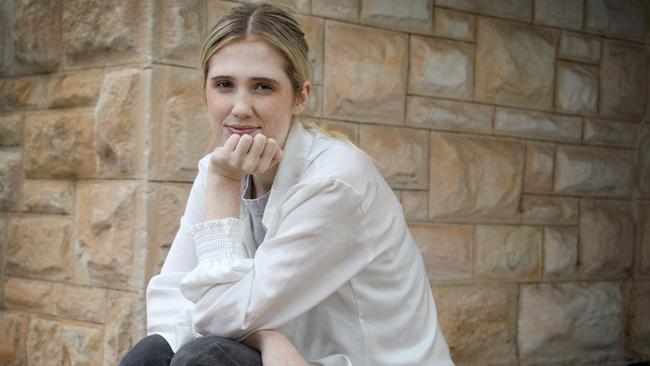
In Year 12, Sophia had bad headaches which she put down to “Year 12 stress” and admitted she often got teased for getting sick regularly.
“People would (say) ‘you’re going to be the one with some serious illness in five years’,” she said.
After graduating school, Sophia, who is a singer, had plans to move to Sydney for university to study performing arts.
But before leaving her family home in Adelaide, she was scheduled to fix her deviated septum.
“I needed an MRI done … and they (doctors) saw a shadow,” she said.
Unfortunately for Sophia, doctors were unable to tell if it was a benign tumour or cancer, and she was told she’d need to undergo brain surgery.
“I remember being on FaceTime to my best friend a few days later and I was like ‘damn I actually think I have cancer’,” she said.
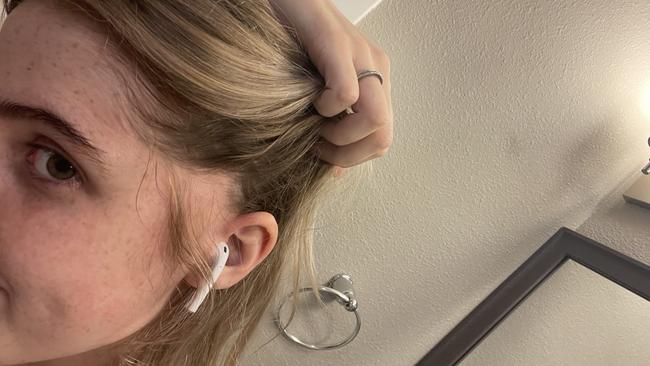
Following an eight-hour brain surgery through her nose, the majority of Sophia’s tumour was removed and in February 2021, tests confirmed the worst.
The tumour was cancerous and Sophia would need to travel overseas to have specialised treatment unavailable in Australia.
“My cancer doesn’t respond to chemo,” she said. “The best course of action would be for me to go overseas and receive a special type of radiation called proton beam radiation … because it doesn’t damage the surrounding organs so especially with the brain that’s important.”
Sophia’s mum Monique Thompson travelled with her daughter to Jacksonville Florida in the US, to the UF Health Proton Therapy Institute while dad Nick stayed home.
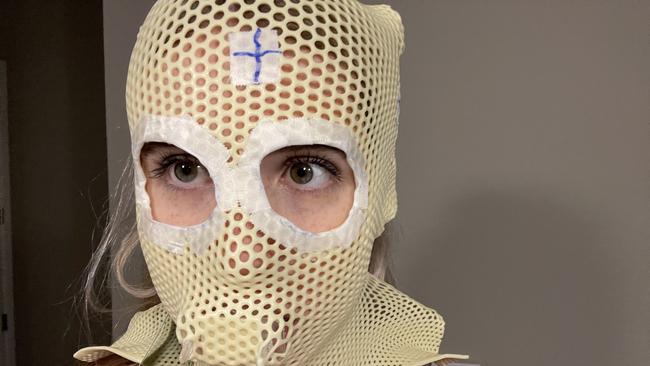
It came as Adelaide was set to open its very own proton beam therapy unit in late 2023. However its opening has been delayed due to financial issues.
Families like the Thompsons have been forced to travel overseas to help their children, with Sophia’s father Nick calling the unit delay “so disappointing”.
“It would save kids’ lives,” Mr Thompson said.
“It costs so much money to send those kids overseas.
“The finance minister said that the taxpayer would have to pay for this … I thought well most taxpayers would love to pay for it, if you gave them the opportunity, if they’re going to save lives.”
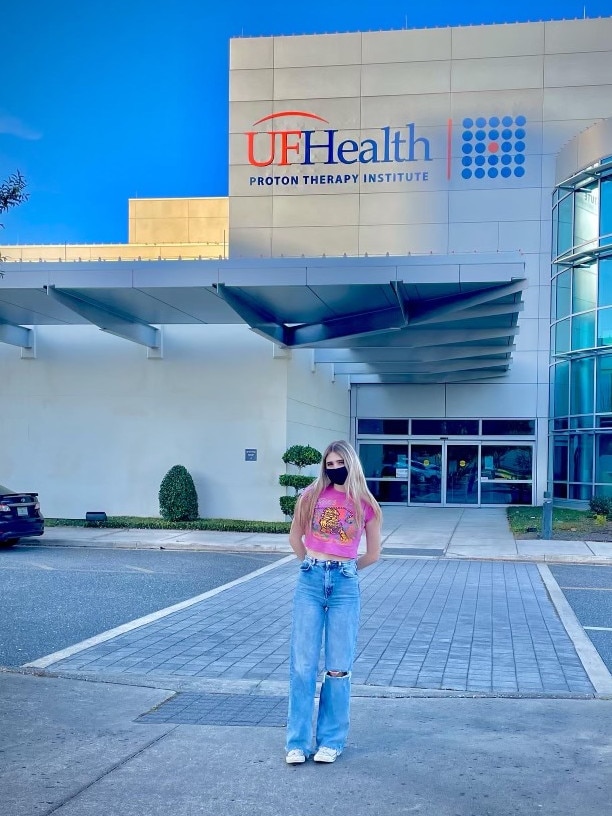
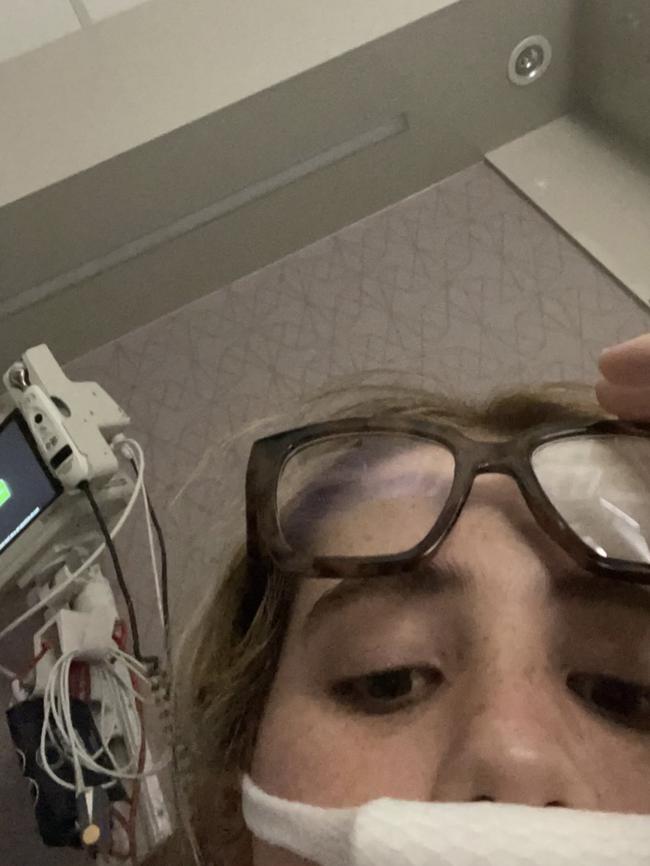
After completing 41 rounds of radiation, Sophia returned to Australia and an MRI showed she was cancer-free.
“I’ve been clear ever since,” she said.
But she does continue to suffer with side effects of the radiation to this day, including nausea which she describes as “morning sickness without being pregnant”.
“I have this constant reminder,” she said.
But she still tries to live her life like any other 21-year-old young woman.
“I would go out every Saturday night, I would have an eye patch on at some point because I would have really bad double vision,” she said.
“I’m surprised I could go out as much as I did … I was just very determined to hang out with my friends and just live normally.”
Sophia’s mother Monique called her daughter her “hero” and continues to be blown away by the resilience she has shown during her cancer journey.
“Not only is she an amazingly talented girl, she’s also somebody who has navigated some pretty hard things at a very young stage in her life and we are so proud of her,” Ms Thompson said.
Sophia shared her story as while her cancer is rare, she would have easily dismissed her symptoms as a headache.
And Sophia is hardly alone in being diagnosed with cancer at a young age.
A recent study published in BMJ Oncology looked at the staggering rise of under 50s being diagnosed with cancer globally, with doctors labelling it a worrying “epidemic” that is set to accelerate in the next few years.
By 2030, the study by Zhejiang University School of Medicine estimated the number of early-onset cancer diagnosis could increase by roughly 30 per cent worldwide – and the number of people who die from their conditions could rise by about 20 per cent.
What’s causing this? Recent research Taussig Cancer Institute in the US suggests our cells are ageing faster than ever due to a rise in stressful sedentary lifestyles and poor food choices. But really, the rise has doctors baffled and in March it was announced that Government-funded researchers at top universities in the US and UK will receive up to $25 million over five years to investigate.
It comes to light as Catherine, Princess of Wales, shared her own cancer diagnosis at just 42 years old in March after months of her being absent from royal duties.
Hollywood actor Olivia Munn, 43, has detailed her “terrifying” cancer journey on social media in recent months, saying she now no longer fears death.
For Sophia, she hopes that sharing her story as part of The Advertiser’s Too Young for Cancer campaign will help raise awareness that cancer can strike anyone and at any age, and to always get symptoms checked by a GP.
Bone cancer affects 300 people in Australia each year. The symptoms can vary from extreme weight loss and fatigue to muscle pain, even when resting.
If you would like more information or support about living with cancer, treatment or diagnosis, please contact the Cancer Council on 13 11 20.





